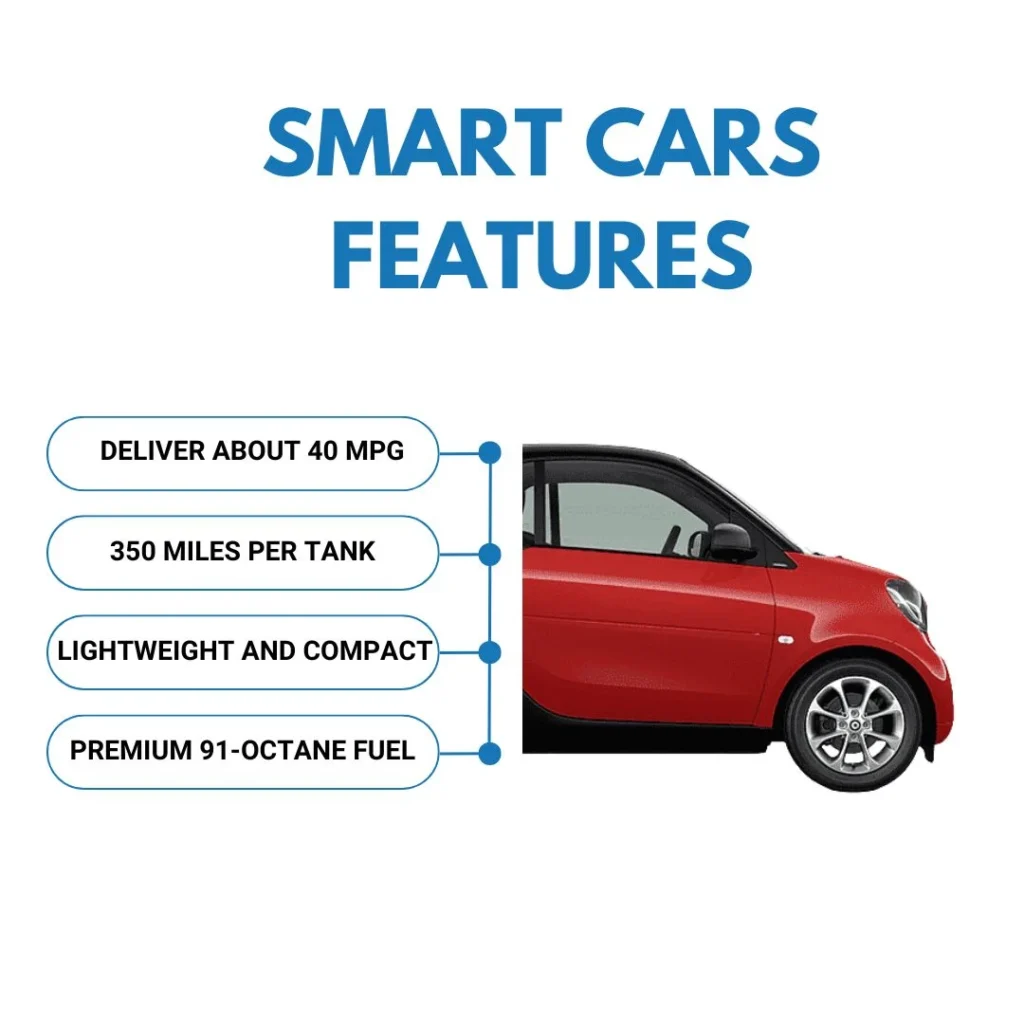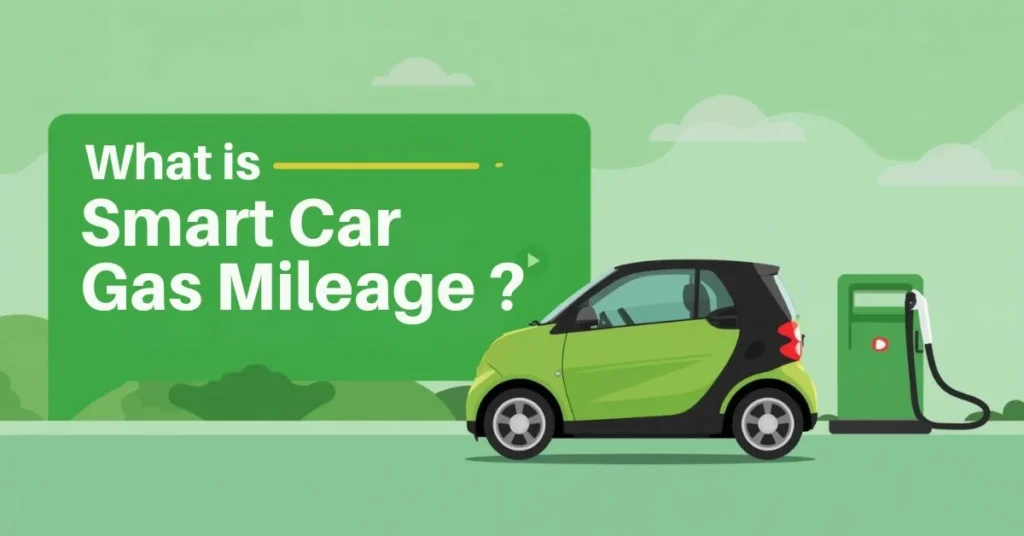Table of Contents
As fuel prices continue to rise, finding ways to save on gas has become a top priority for many drivers. While some rely on smart driving habits or features like cruise control to stretch every drop of fuel, others look toward vehicles built for efficiency. Enter the smart car a compact, lightweight, and surprisingly powerful solution for those seeking maximum mileage with minimal fuel costs.
Known for their impressive gas mileage and eco-friendly design, smart cars have quickly gained popularity among urban commuters and budget-conscious drivers alike. But just how fuel-efficient are they, and what makes them stand out from other vehicles? Let’s explore the real story behind smart car gas mileage and what it means for your wallet and the road ahead.
Understanding MPG: What Does It Mean?
When car manufacturers test new vehicles, one key metric they measure is MPG, or miles per gallon. This number tells you how far a car can travel on a single gallon of fuel. For example, a vehicle rated at 25 MPG can drive 25 miles using one gallon of gas. The Environmental Protection Agency (EPA) independently tests vehicles and confirms their official MPG ratings, which are then published by manufacturer and model. These ratings are typically divided into three categories:
- City MPG: Reflects stop-and-go driving in urban areas. Because of frequent acceleration and braking, this number is usually lower.
- Highway MPG: Measures fuel efficiency on open roads and highways, where driving is smoother and more consistent.
- Combined MPG: An average of both city and highway ratings, giving a general idea of a car’s overall fuel efficiency.
If your vehicle’s mileage has dropped, it could be time to check your engine’s condition. Installing a high-quality used engine can often restore lost fuel efficiency and improve your car’s overall performance.
Vehicle Types and Their Mileage
The type of vehicle you drive greatly affects your MPG.
- Electric and hybrid vehicles lead the pack in fuel efficiency, often reaching the highest MPG or MPGe (miles per gallon equivalent) ratings.
- SUVs offer a balance between power and fuel economy, though they’re less efficient than smaller cars.
- Trucks and heavy-duty vehicles prioritize power and towing capacity over fuel savings.
For drivers who aren’t ready to go fully electric, hybrid vehicles can be an excellent compromise. With features like aerodynamic designs, electric assist motors, and start-stop systems, hybrids typically achieve 40–50 MPG on average.
Smart Car Gas Mileage
So, where do smart cars fit into all this? Thanks to their compact size and lightweight design, smart cars are among the most fuel-efficient gas-powered vehicles on the market. On average, a smart car delivers around 40 MPG and is priced affordably at about $12,000. With a fuel tank capacity of roughly 8.7 gallons (plus a 1.3-gallon reserve), you can expect to travel about 350 miles before needing to refuel.
However, there’s a small catch: smart cars require premium 91-octane fuel, not regular 87-octane, which can increase fuel costs slightly. Still, their overall fuel efficiency and affordability make them appealing for budget-conscious drivers. Keep in mind that actual mileage can vary based on driving habits, terrain, and maintenance, so it’s always wise to monitor your personal MPG over time.

How to Calculate Your Own MPG?
While your car’s onboard computer can estimate MPG, you can also calculate it manually using this simple method:
- Fill up your gas tank completely.
- Drive 100 miles (or any set distance you prefer).
- Refill your tank and note how many gallons it takes.
- Divide the miles driven by the gallons used to get your MPG.
Conclusion
Fuel efficiency or MPG is a crucial factor when choosing a vehicle. It not only affects your running costs but also determines how environmentally friendly your ride is. Smart cars stand out for their excellent fuel economy, lightweight design, and affordability. However, since they require premium fuel and may not suit every driver’s needs, it’s important to consider your budget and driving habits before making a decision. If saving on gas and driving a compact, efficient car sound appealing, a smart car could be the perfect fit for you.
Frequently Asked Questions
-
What is the average gas mileage of a smart car?
Smart cars typically deliver around 40 MPG on average, making them among the most fuel-efficient gas-powered vehicles on the market. Thanks to their compact size and lightweight design, they offer excellent fuel economy for budget-conscious drivers and urban commuters.
-
How far can I drive on a full tank in a smart car?
With a fuel tank capacity of approximately 8.7 gallons (plus a 1.3-gallon reserve), you can expect to travel about 350 miles before needing to refuel. However, actual mileage may vary depending on your driving habits, terrain, and vehicle maintenance.
-
Do smart cars require special fuel?
Yes, smart cars require premium 91-octane fuel rather than regular 87-octane gasoline. While this increases fuel costs slightly per gallon, the overall fuel efficiency of 40 MPG still makes smart cars economical to operate compared to less efficient vehicles.
-
How much does a smart car cost?
Smart cars are priced affordably at approximately $12,000, making them an accessible and budget-friendly option for drivers who want excellent fuel efficiency without the higher upfront costs typically associated with hybrid or electric vehicles.
-
How do I calculate my own MPG to verify fuel efficiency?
You can manually calculate your MPG using this simple method: Fill up your gas tank completely, drive 100 miles (or any set distance), refill your tank and note how many gallons it takes, then divide the miles driven by the gallons used. This gives you a real-world MPG that reflects your actual driving conditions and habits.



